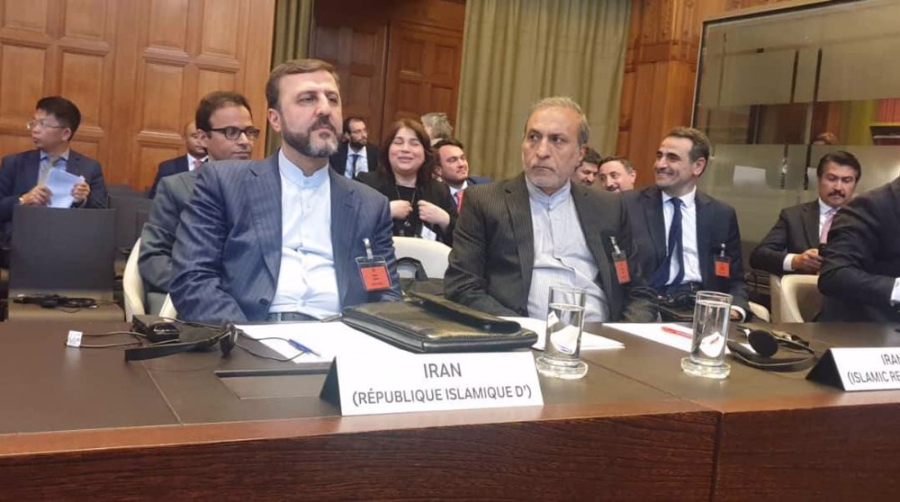Tehran has slammed the Israeli assaults on the Gaza Strip and the West Bank as a clear example of genocide, calling on the International Court of Justice (ICJ) and the international community to act responsibly to halt the atrocities.
Kazem Gharibabadi, the deputy foreign minister for legal and international affairs, made the call during the third hearing session of the ICJ probe on Israel's obligations toward UN agencies delivering aid to Palestinians in Gaza.
At the beginning of his remarks, Gharibabadi highlighted the stature of the ICJ as the highest legal authority within the United Nations, noting that this international body is once again confronted with a historical test, one that is inextricably linked to the fate of an oppressed nation.
Citing undeniable evidence of genocide in Gaza, the senior diplomat warned that the opportunity to prevent this massive genocide is rapidly slipping away.
“Despite repeated orders from the International Court of Justice, the Zionist regime continues its deadly policies, and the international community has failed in its moral and legal obligations.”
Referencing reports from the United Nations Office for the Coordination of Humanitarian Affairs and other international bodies, Gharibabadi stated that access to humanitarian aid has been completely blocked and that directly constitutes genocide.
Referring to international conventions, especially the Fourth Geneva Convention and the 1907 Hague Convention, the deputy minister stressed that the Israeli regime, as an occupying force, has flagrantly disregarded its binding obligations to provide for the vital needs of civilians.
He specifically mentioned Article 55 of the Geneva Convention, which obliges the occupier to supply food and medicine.
“The Zionist regime has not only failed to abide by these obligations but has also deliberately obstructed the entry of humanitarian aid.”
He also referred to investigations by the International Criminal Court and the International Court of Justice into the actions of the Zionist regime’s leaders, noting that sufficient evidence exists to prove the commission of international crimes.
In his speech, the Deputy Minister of Foreign Affairs, citing the advisory opinion of the ICJ in 2004 on the Israeli separation walls in the West Bank, stressed that all governments and international institutions are obligated to cut off any form of aid to the occupying regime and to make earnest efforts to end the illegal situation prevailing in Palestine.
He stated, “The failure to provide immediate and unobstructed access to humanitarian aid for the Palestinian people clearly constitutes a flagrant violation of the international commitments of states regarding the prevention of genocide.”
ICJ judges are holding a week of hearings to formulate an advisory opinion on Israel's obligations toward UN agencies in Gaza. Israel is not attending the proceedings, but it has provided a written submission to the ICJ.
Around 40 nations and organizations, including the League of Arab States, are taking part in the hearings.
The status of UNRWA is central to the hearings. Israel has banned it from operating in the Israeli-occupied territories after accusing some of its staff of assisting Hamas in the Al-Aqsa Flood operation on October 7, 2023.
Additionally, Israel has blocked all inflows of international aid vital for the 2.4 million Palestinians in the Gaza Strip over the past 60 days.
The UN's top court has already ordered the Israeli regime to take all measures within its power to prevent genocide in Gaza.
The International Criminal Court has also issued arrest warrants for Israeli Prime Minister Benjamin Netanyahu and his former minister of military affairs, Yoav Gallant, over war crimes against Palestinians in the Gaza Strip.
Press TV’s website

